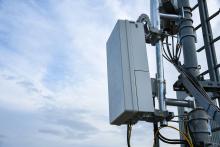Looking through the new National Broadband Plan, I have to wonder: When did broadband access become a right? This beefy document (seventeen chapters, almost four hundred pages) carries an undercurrent that says "America needs this". As an educator, parent, small-town public official, and technologist, I can relate to the noble goals of the National Broadband Plan. If robust Internet connectivity can cure society's ills, then bring it on. But I can't help think that as honorable as the Plan's goals may be, our collective priorities might be off kilter.
In a nutshell, the National Broadband Plan seeks to address the estimated 100 million Americans that lack broadband in the home. This statement from the plan's Executive Summary exemplifies the urgency the FCC feels: Broadband is the great infrastructure challenge of the 21st century. Sounds reasonable, given that the rapid rise of mass connectivity both in the US and abroad over the last two decades has somehow still left millions without access. But zooming out a bit, is the lack of broadband our biggest problem? And given that taxpayer dollars will fund a sizable portion of an initiative that will take billions to pull off, are we ready to go down this road? Having lived in the Southwest, I know first hand that ongoing access to clean water is probably as much of a concern for many people. As a current resident New York State, I can tell you a large percentage of our highway bridges are fast approaching critical stages of disrepair from years of state budget issues. And other examples of more basic infrastructure problems abound. Sure, good broadband on a national scale is a worthy goal, but does it rise to the top of our worry list? And should people in one area have to fund the Gigabit pipe that the plan promises a hospital in another area?
What about those who choose to live where ISPs won't go for lack of customer base? I work with people who opt to live in rural areas. They have acres for four-wheeling and their own ponds for fishing, but they can barely get a cell signal, no less a decent Internet connection. They are counted among the millions of under-served that the plan seeks to connect, but they have chosen this option. Why couldn't someone else with a well and septic system demand public water come to them in the same spirit of "infrastructure equality"?
Regardless of my skepticism, I am glad to see that connectivity is getting scrutiny in high places. I personally hope that there is room for evolution and refinement of the National Broadband Plan as it gets closer to implementation. Given that the plan seeks to revolutionize education, health care, energy delivery, citizen-to-government interactions and more, it is a mandatory read for anybody in IT. You can find the plan here.








